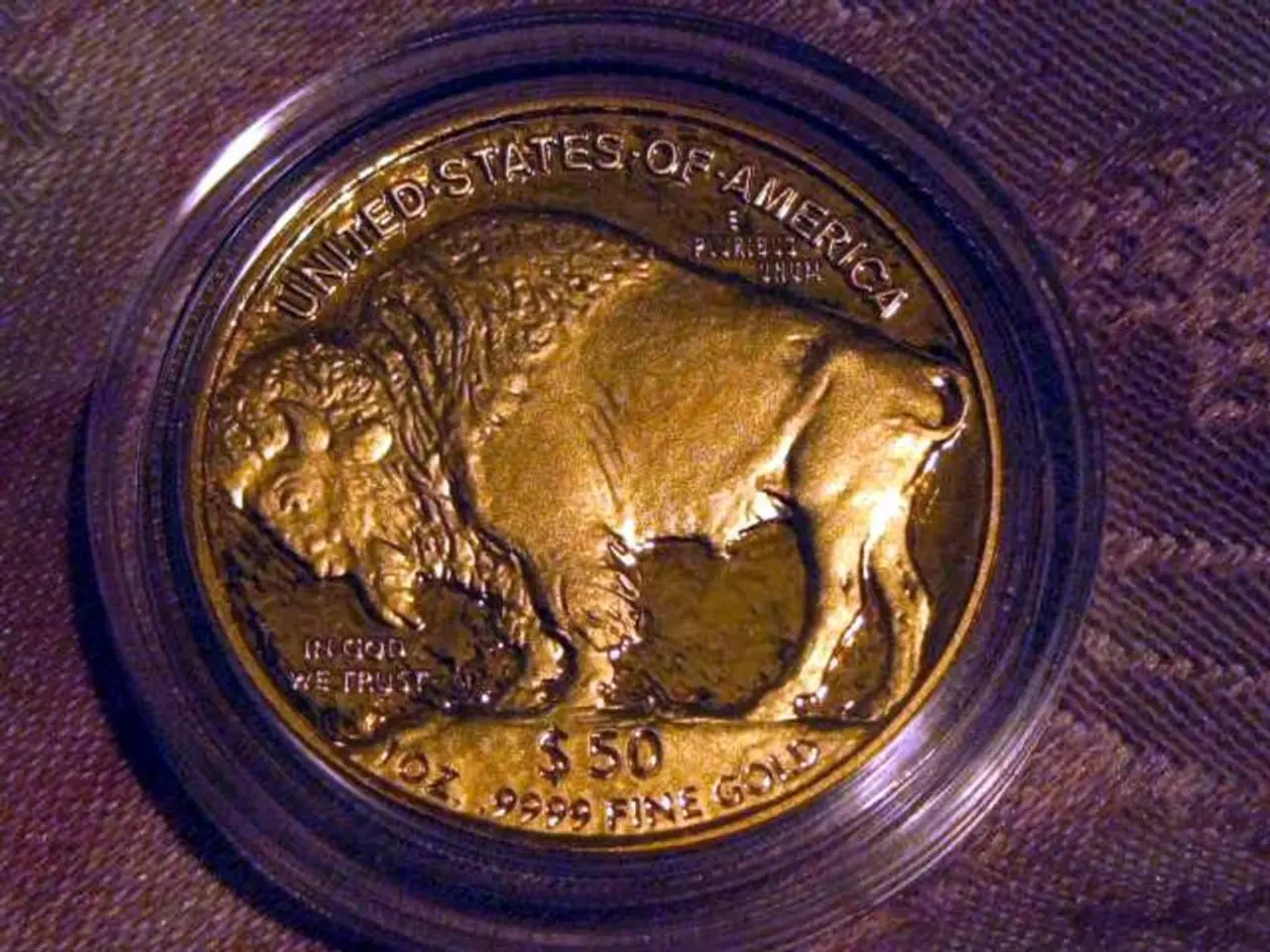Trump appoints bitcoin-supportive economist to Federal Reserve position, boosting cryptocurrency's outlook
The appointment of economist Stephen Miran, a known Bitcoin supporter, to a seat on the Federal Reserve Board by President Donald Trump has sparked speculation about a potential shift in monetary policy.
Greg Magadini, director of derivatives at Amberdata, stated that traders are interpreting Miran's appointment as a tilt toward easier policy from the Federal Reserve. This shift could lead to lower interest rates, supporting economic growth but possibly raising inflation risks.
Miran served in the Treasury Department during the first Trump administration and is currently chairman of the Council of Economic Advisors. His term on the Federal Reserve Board will last until January 31, 2026.
Trump praised Miran's economic expertise, stating it was "unparalleled" and that he served with distinction during the first Trump administration in 2016.
While Miran's stance on cryptocurrency is not explicitly detailed, his advocacy for policies that weaken the dollar and increase presidential control over the Fed may enhance Bitcoin's appeal as an alternative store of value and hedge against traditional fiat currency volatility.
Beyond monetary policy, Miran has proposed significant reforms to increase presidential influence over the Fed's governance. These proposals pose an "existential threat" to the Fed's independence, potentially reshaping U.S. monetary policy and financial regulation. This increased politicization could heighten uncertainty in broader markets, potentially increasing interest in decentralized assets like Bitcoin.
Investors and institutions should closely monitor the Senate confirmation and subsequent Fed actions to gauge the evolving landscape for both traditional markets and Bitcoin. It is worth noting that while Bitcoin is often referred to as "digital gold," the total market capitalization of the entire crypto market remains small compared to traditional assets.
The market reaction seems to think that the Federal Reserve will implement easier policy under Stephen Miran. However, if the Fed loses its independence and ability to fight inflation, Greg Magadini warned of deeper structural risks, comparing it to the 1970s.
In the 1970s, the end of Bretton Woods sent gold from $35/oz in 1970 to $700/oz by 1980. Gold prices have continued to climb, according to Magadini, and this current environment has parallels.
U.S. Treasury auctions have shown weak demand in recent weeks, according to Magadini, and inflation remains stubborn. The latest PCE reading came in at 2.6%, above both the Fed's 2% target and the prior three-month average of 2.3%.
In summary, Miran’s appointment signals a near-term tilt toward easier Fed policy with lower interest rates, potentially strengthening Bitcoin's case as an inflation hedge amid monetary loosening and dollar devaluation ideas he supports. However, increased political influence over the Fed, undermining its independence, could increase financial market volatility and strengthen interest in decentralized currencies.
[1] Source: CNBC [2] Source: The Hill [3] Source: Bloomberg [4] Source: The Wall Street Journal
- The appointment of economist Stephen Miran, known for his support of Bitcoin, to the Federal Reserve Board has ignited discussions about a possible crypto market boost due to easier monetary policy.
- Greg Magadini from Amberdata suggests that the potential shift towards an easier Fed policy under Stephen Miran strengthens Bitcoin's case as an inflation hedge.
- As the Fed grapples with increased political influence and potential loss of independence, interest in decentralized currencies like Bitcoin could surge due to their inherent characteristics, such as reduced volatility compared to traditional fiat currency.
- In the long-term, the evolving landscape surrounding the Federal Reserve, as indicated by Miran's appointment and proposed changes, could lead to a reshaping of U.S. monetary policy and financial regulation, potentially accentuating the business and technology aspects of the crypto market.




